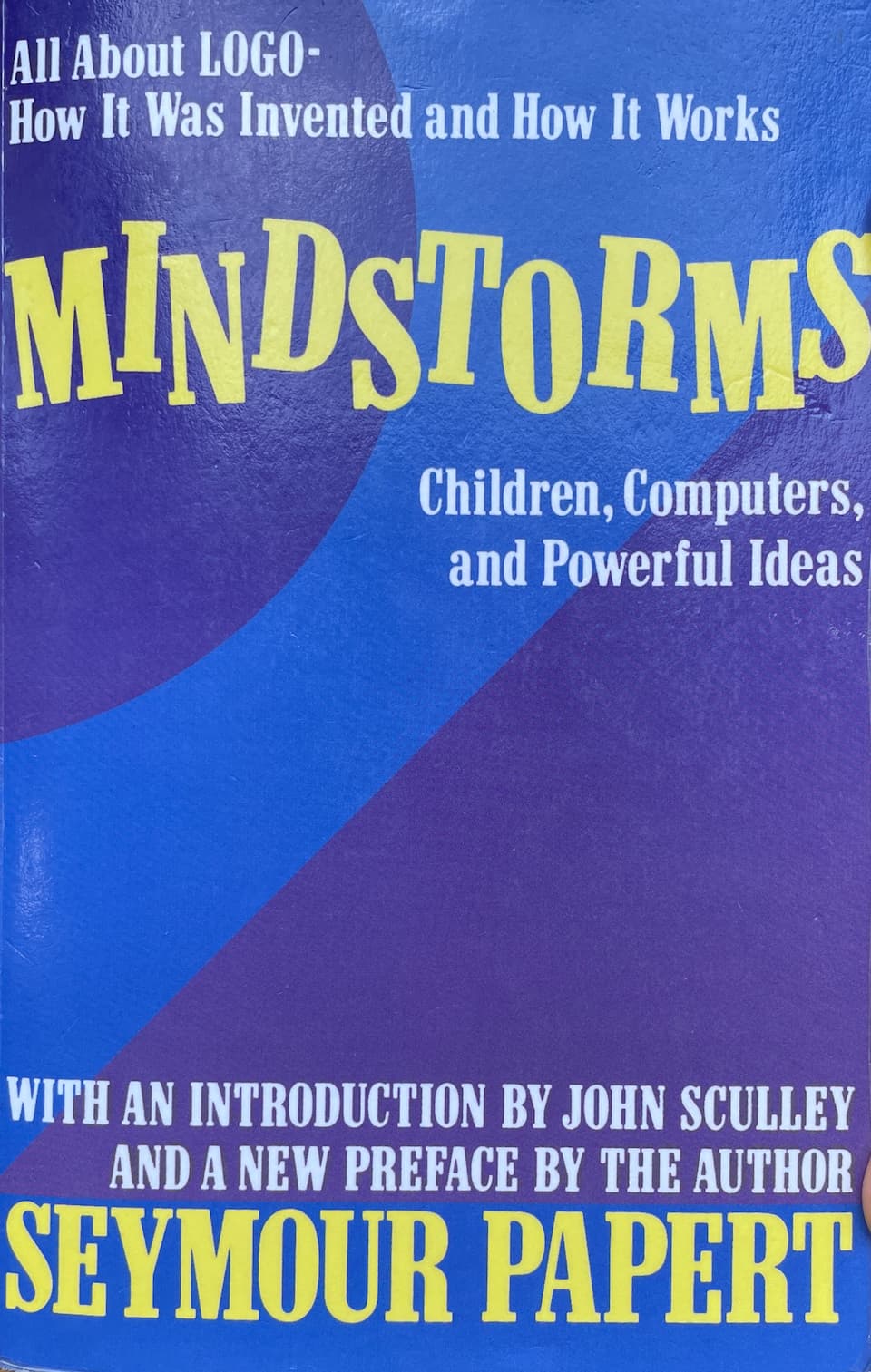
Mindstorms
Children, Computers, and Powerful Ideas
This book is a summary of the research program by the author Seymour Papert and his colleagues at MIT on how best to teach computer programming to children. Papert takes this straightforward premise and pulls it all the way down to the fundamental structure of knowledge, claiming that all humans are capable of deeply "technical" learning and theory building if given a learning environment and orientation to the material that are resonant with their human needs. I absolutely love it.
Crafting a resonant learning environment and orientation has many aspects discussed throughout the book that I will write about elsewhere, but the first claim that Papert relentlessly builds proof for throughout the book is that all kinds of knowledge can be learned by all kinds of people, and indeed can be innovated on by them, if the curriculum is designed to be ergonomic. This completely reverses the responsibility of learning as we see it. Instead of some people being "mathematical" and others not, we see the curriculum as failing to engage those people who do not see themselves as mathematical. To combine Papert's terminology with that of Don Norman[1], we are failing those children and adults by not creating learning environments that are rich in syntonic affordances, opportunities to leverage more familiar forms of knowledge such as bodily knowledge in order to relate deeply to the new material.
This books has its hands on the root of some core aspects of the human experience. Even more remarkably, it illuminates those aspects with more empathy and generosity than I have ever seen in any work of non-fiction, let alone any work of such dense philosophical and scientific concepts. I finished it 10 minutes before time of writing this post, and it is immediately inducted into the small circle of works that are core to understanding me, alongside books like Reinventing the Sacred and Long Life.
Another book core to my worldview but not yet added to this library—Zen and the Art of Motorcycle Maintenance—is actually referenced in the afterword to bolster the author's argument that the construction of technical knowledge is guided by humanistic forces outside of the technical realm!
Bret Victor is the writer who finally convinced me to read this book, and I'll echo his plea: "For fuck's sake, read Mindstorms!"
Don Norman is the author of The Design of Everyday Things, and early in the book (which I have yet to finish) he has an iconic discussion of door handles that lie about whether they should be pushed or pulled. Here he says the door is failing to provide cogent "affordances" for the user. I can't help but see a similar claim about knowledge being made by Papert in his use of the term "syntonicity". You have to give knowledge clear handles to show students where to push and pull. ↩︎
Citation
Seymour Papert. Mindstorms: Children, Computers, and Powerful Ideas. Second Edition. 1993. Printed Book.